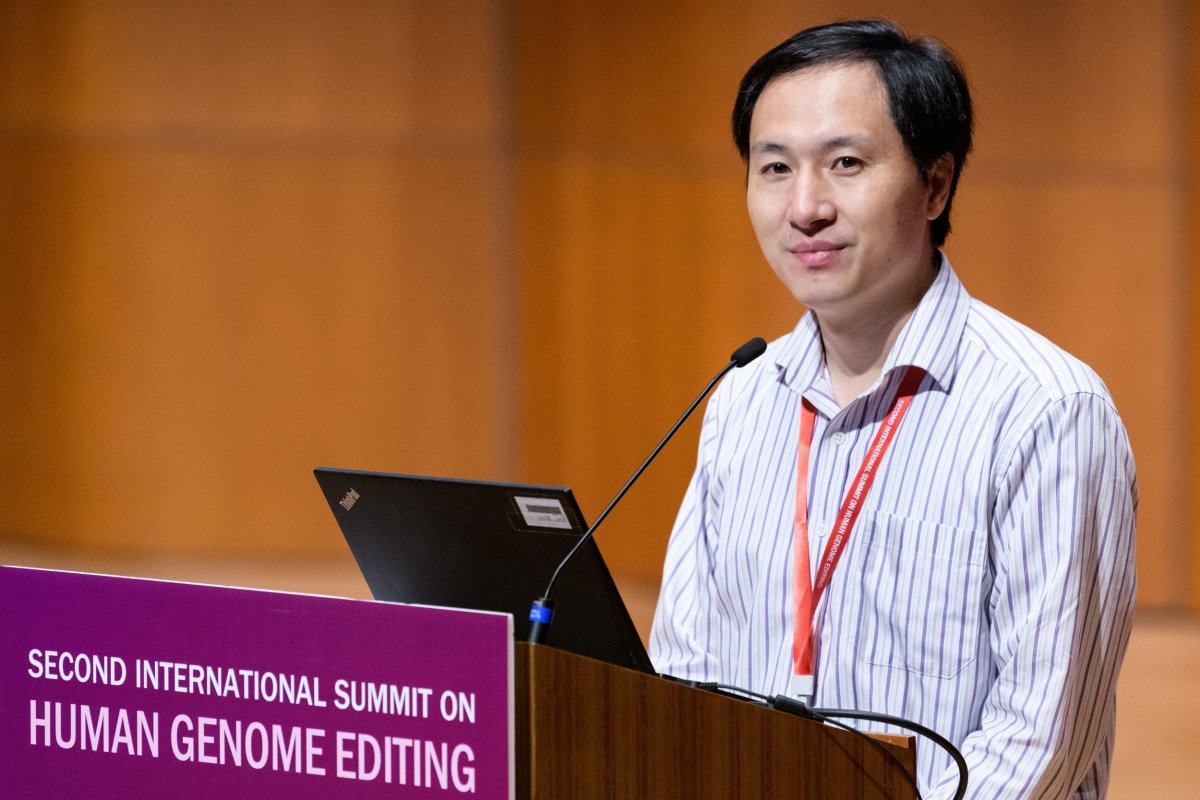The Chinese government may have funded the infamous gene-editing experiments carried out by scientist He Jiankui last year, according to a report.
The birth of the world's first gene-edited babies—two twin girls—shocked the world when He announced it at a conference last November, and since then, the government of China has distanced itself from the work.
Indeed, an investigation by authorities in China concluded that He performed the experiments despite them being "officially banned in the country," Xinhua news agency reports. It said He and other scientists working with him would be punished appropriately.
"This behavior seriously violates ethics and scientific research integrity, and seriously violates relevant state regulations," Xinhua said. "The relevant person in charge of the investigation team said that He Jiankui and the personnel and institutions involved will be dealt with seriously according to the law."
However, a report by health and medicine website STAT now says three government bodies, including China's science ministry, may have been involved in funding He's work. One scientist told the website that He is being used as a "scapegoat."
STAT claims to have access to documents that show where funding for the gene-editing experiments came from. This includes a slide presentation by one of He's research teams, China's clinical trial registry and patient consent forms. In these, funding sources cited include the Ministry of Science and Technology, the Southern University of Science and Technology (SUSTech) where He worked, and the Shenzhen Science and Technology Innovation Commission, which is part of government.
Following He's announcement, he was suspended and then fired from SUSTech, which denied all knowledge of the experiments. The Ministry of Science and Technology told STAT that "based on the preliminary investigation, it did not fund He's activities of human genome editing." None of the other parties involved responded to comment requests from the website.
STAT notes that institutions may not have been aware of how their money was being spent—He might have used funding that had been provided to him at an earlier date for different research.
Since He's announcement, many scientists have questioned whether he was working entirely alone. Jing-Bao Nie, a bioethicist at the University of Otago in New Zealand, told STAT: "I don't think He Jiankui could have done it without the government encouragement to press ahead.
"They want him to be the scapegoat, so everybody else can be vindicated. But this would disguise serious institutional failures."
Over the past few months, it has emerged that other prominent scientists might have been aware of He's activities. Emails obtained by the Associated Press in January show that He told Nobel Prize–winning scientist Craig Mello about the pregnancies months before he made the official announcement. In response to the email, where He confirms the first pregnancy, Mello says he does not want to be "kept in the loop" and warns that He is risking the health of the child. "I think you are taking a big risk and I do not want anyone to think that I approve of what you are doing," Mello told He.
It is unclear how He would be punished if found guilty of breaking Chinese law. However, Nie says the focus should be on how the system allowed He to perform these experiments. "Even if He acted alone, which is a big if, there should have been institutions that could have prevented that," Nie told STAT. "A good system creates redundant safeguards that limit the harm a bad actor can do."

Uncommon Knowledge
Newsweek is committed to challenging conventional wisdom and finding connections in the search for common ground.
Newsweek is committed to challenging conventional wisdom and finding connections in the search for common ground.
About the writer
Hannah Osborne is Nesweek's Science Editor, based in London, UK. Hannah joined Newsweek in 2017 from IBTimes UK. She is ... Read more
To read how Newsweek uses AI as a newsroom tool, Click here.








